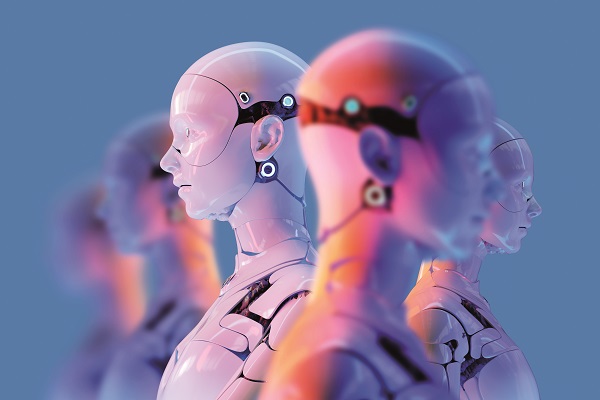Over the last few years, generative AI has gained a lot of attention in the film industry. But now we are ready for the next big leap, with various deep learning models helping to write texts and creating art like humans, says Hasit Trivedi of Tech Mahindra.
Filmmakers will no longer have to handcraft every single visual effect or animation in their videos. De-aging, content generation, voice cloning, hyper-realistic looks and accurate language dubbing will change how films are made. The power to automate and generate lifelike graphics is now within our grasp thanks to the wonders of generative AI, and will help filmmakers take their craft to the next level.
So what is generative AI, and what is its superpower?
Generative AI is an exciting field of machine learning that enables computers to create art, music, literature, audio and video. It uses algorithms to analyse patterns in existing works, learn from them and generate new works of art that are unique and original. Many generative AI language models – no-code/low-code creative platforms – have taken the world by storm in the last few months.
With the help of generative AI, filmmakers can now create ideas, plot lines, visuals, realistic characters and entire scenes. This opens new possibilities for storytelling and enables filmmakers to explore new genres and styles of filmmaking and focus on other aspects such as directing.
From concept to screen: Generative AI for dynamic filmmaking
One of the most significant impacts of generative AI on filmmaking is its use to assist in casting. By analysing the physical characteristics of successful actors, generative AI algorithms can generate new faces that match those characteristics. This technology has the potential to revolutionise the casting process, allowing filmmakers to quickly generate a pool of potential actors for a given role. This could reduce the time and cost associated with traditional casting methods. It can create characters that look and move like real people, which is especially useful in science fiction and fantasy films, where there is a need for ethereal creatures and other world beings.
In addition, creating realistic effects requires an enormous amount of time and resources, but AI can help filmmakers generate lifelike simulations of explosions, weather patterns and even entire landscapes. This not only saves time and money, but also allows filmmakers to bring their creative visions to life in ways that were previously impossible.
Likewise, generative AI helps bridge cultural gaps through the automatic creation of subtitles and dubbed programmes, making local content more accessible to a global audience. AI-based dubbing technology, for instance, can create voiceovers in different languages.
Furthermore, generative AI can also be used to create music and sound effects for films. By analysing existing music and sounds, AI can generate new compositions and effects that fit the mood and tone of the film. This helps filmmakers to create a unique and immersive experience for their audience.
Another way generative AI has been used in filmmaking is by generating scripts. Again, by analysing large amounts of data, generative AI algorithms can generate scripts that match the tone and style of existing movies or television shows. For example, we can create a generative AI model that analyses a dataset of thousands of movie scripts, and the model can then generate new scripts that are similar to the input data. This technology will revolutionise the way movies and television shows are produced, enabling quicker generation of scripts that match a filmmaker’s creative vision.
Elevating filmmaking with analytics
Going beyond creation, generative AI can help filmmakers evaluate audience reactions and feedback. Machine learning algorithms will help it analyse social media trends, reviews and other data to provide insights on how audiences respond to a film. This information can then be used to make changes and improvements to the films, ensuring that they resonate with audience expectations.
Navigating the complexities
Of course, sceptics could argue that generative AI will lead to a lack of creativity and originality in the film industry. No doubt, AI can generate new and original content but cannot replace the human element of filmmaking, such as the ability to interpret emotions and create meaningful connections with the audience.
Another challenge is the potential for generative AI to reinforce existing biases and stereotypes. AI algorithms learn from the data that they are trained on, and if the data is biased, the resulting content generated by the algorithm may also be biased. It is crucial that filmmakers take steps to ensure that their data is diverse and inclusive, to avoid spreading harmful stereotypes and biases. With the continued development and integration of AI in filmmaking, the possibilities for creating immersive and engaging films are truly endless.
![]() Hasit Trivedi is CTO of Digital Technologies and Global Head-AI, Tech Mahindra.
Hasit Trivedi is CTO of Digital Technologies and Global Head-AI, Tech Mahindra.














































































